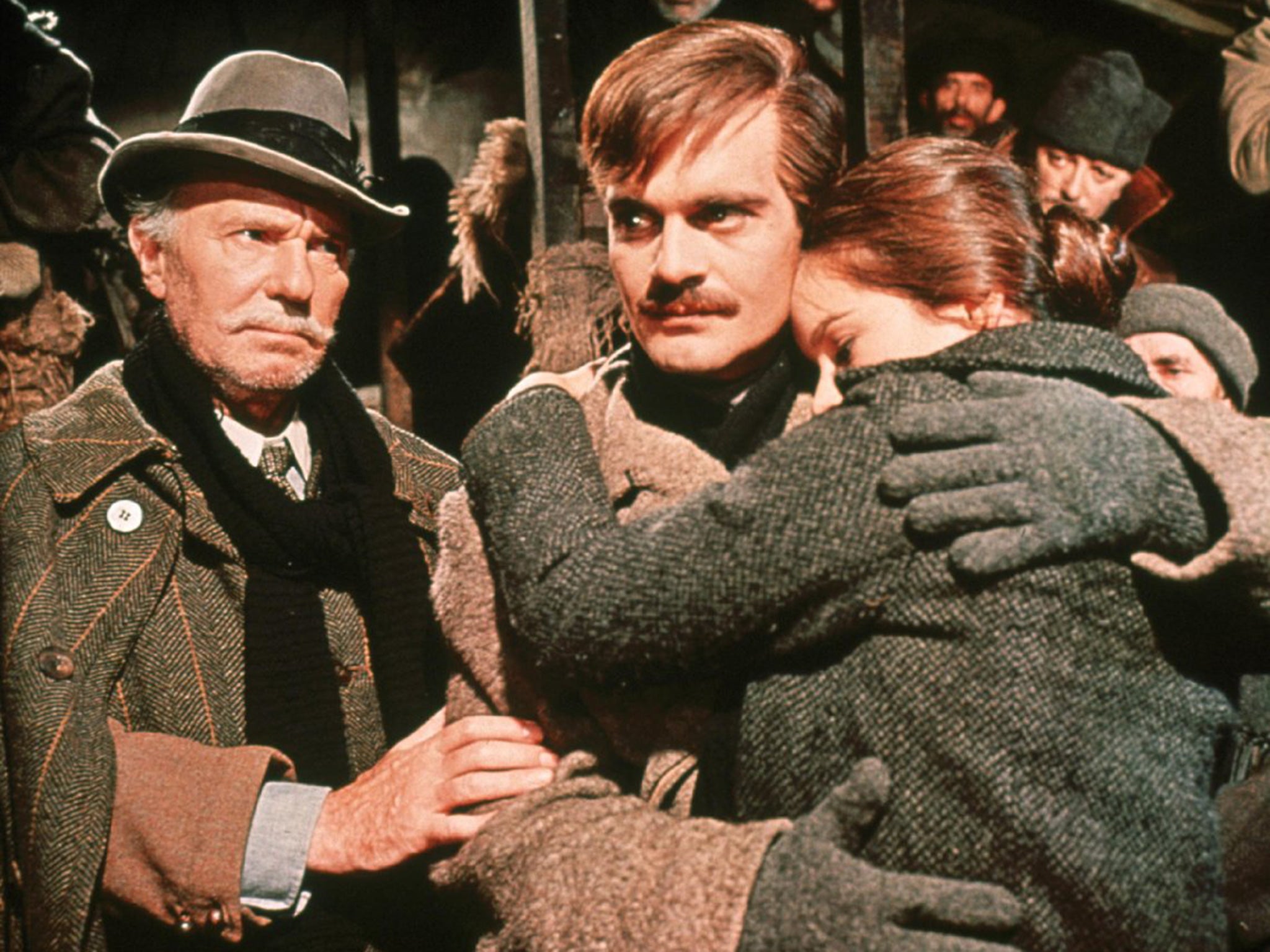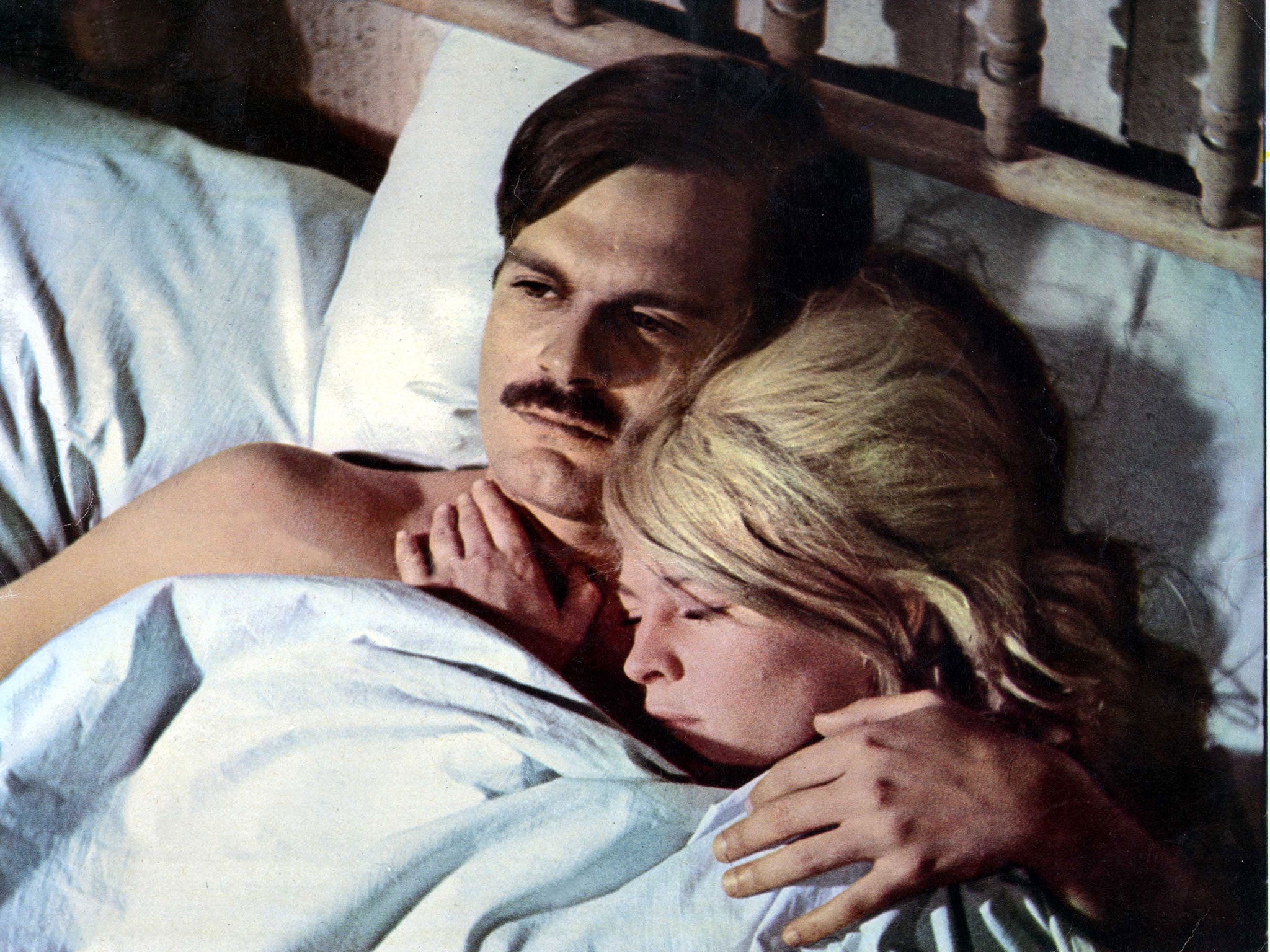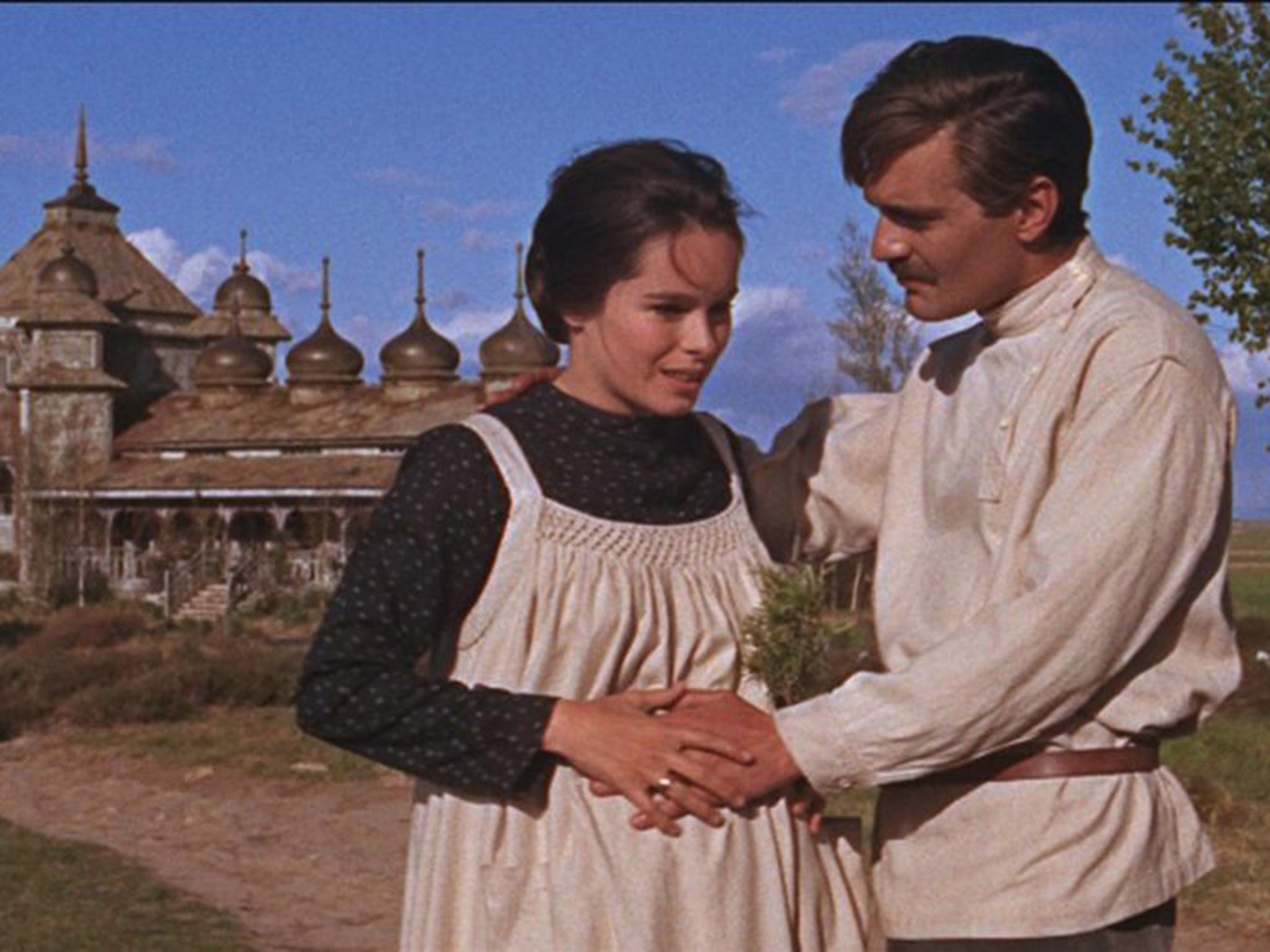Omar Sharif: How Doctor Zhivago provided the actor with the greatest role of his hit-and-miss career
Egyptian star remembered 86 years after his birth for starring in David Lean's lavish Russian romance opposite Julie Christie
The great Egyptian film actor Omar Sharif (1932-2015) is remembered today on what would have been his 86th birthday.
Google's latest Doodle captures the smouldering gaze that made Sharif an international star in the 1960s following his breakthrough supporting turn as the wry Sherif Ali in David Lean's Lawrence of Arabia (1962).
Ali's entrance, shot by Freddie Young, is one of the most famous in screen history: emerging from the desert haze as a dark figure on the horizon, he rides his camel to meet Lawrence (Peter O'Toole) in the foreground before abruptly shooting dead the latter's Bedouin guide for drinking from his well without permission.
Sharif went on to play a huge range of roles, benefiting from Hollywood's then far more laissez faire attitude towards race to specialise in non-American characters from pretty much anywhere.
He appeared as an Armenian king in The Fall of the Roman Empire (1964), a Spanish Civil War priest in Behold a Pale Horse (1964), a Yugoslav dissenter in The Yellow Rolls-Royce (1965), a Nazi intelligence officer in The Night of the Generals (1967) and the title roles in two historical biopics, Genghis Khan (1965) and Che (1969).
Equally content as Mongol warlord or Cuban guerilla, aided by a natural gift for languages, Sharif's greatest role was surely the lead in Doctor Zhivago (1965), his second sprawling epic for Lean taken from Boris Pasternak's popular 1957 novel of love amid the Russian Revolution.
A hugely ambitious undertaking, Lean's adaptation of a book banned in the Soviet Union had to be filmed in Spain and Finland, a shoot complicated by the firing of cinematographer Nic Roeg (later an admired director in his own right) over creative differences with Lean, a notorious martinet on set, paving the way for the return of Young behind the camera.
The result nevertheless took home five Academy Awards despite reservations from contemporary critics about its lengthy three-hour running time.
Among the most scathing responses came from The New Yorker's Pauline Kael, who complained: "It isn't shoddy (except for the music); it isn't soap opera; it's stately, respectable and dead."
While the naysayers failed to deter audiences, who ensured Zhivago was a box office hit, such disdain is understandable in context.
With the French Novelle Vague in full swing and the New Hollywood of Easy Rider (1969) just around the corner, MGM's romance must have seemed old-fashioned, the product of an exhausted studio system bereft of fresh ideas and falling back on reliable formulas.

The film was given a 4K restoration by the BFI three years ago for its 50th anniversary, however, and today its sweep and grandeur can hardly fail to impress. It has arguably aged better than many of the supposedly more groundbreaking works that succeeded it.
Sharif stars as Yuri Andreyevich Zhivago, a medical student and poet caught up in the events of 1917. He is taken in by the bourgeois Gromeko family in Moscow after his mother's death and eventually marries their daughter Tonya (Geraldine Chaplin), only to fall for Lara Antipova (Julie Christie), herself married to zealous Bolshevik Pasha (Tom Courtenay).
Lean's film follows Yuri and Lara's fortunes after they escape to the Ural Mountains while his half-brother Yevgraf (Alec Guinness), a senior KGB official under Stalin, searches for their lost daughter Tanya in the present day.

An enviable cast is rounded out by Ralph Richardson, Rod Steiger and Klaus Kinski. Sharif's own son Tariq, played the young Yuri in the film's unforgettable funeral scene.
Maurice Jarre's score, despite Kael's jibe, remains one of cinema's most memorable, with "Lara's Theme" in particular loved by millions.
Sharif is superbly soulful as the disappointed idealist, a role he was given after O'Toole, Paul Newman, Michael Caine and Max von Sydow had all been considered.

Christie and Courtenay were chosen after Lean was impressed by Billy Liar (1963), the former luminous in a part she was perhaps always better suited to than her old kitchen sink co-star was to his.
Sharif would go on to enjoy a colourful life and other hits, notably Funny Girl (1968) with Barbara Streisand, but somehow struggled to find work of consistently high quality.
"What killed my career was appearing in a succession of films you wouldn't turn down. They were by good directors, but they were bad films," he said, singling out Behold a Pale Horse, The Appointment (1969) and The Horseman (1971).
Sharif worked steadily for the rest of his life despite these duds and would no doubt have accepted their failure with a philosophical shrug as a devoted card player and gambler accustomed to the whims of fate.
Join our commenting forum
Join thought-provoking conversations, follow other Independent readers and see their replies
Comments
Bookmark popover
Removed from bookmarks